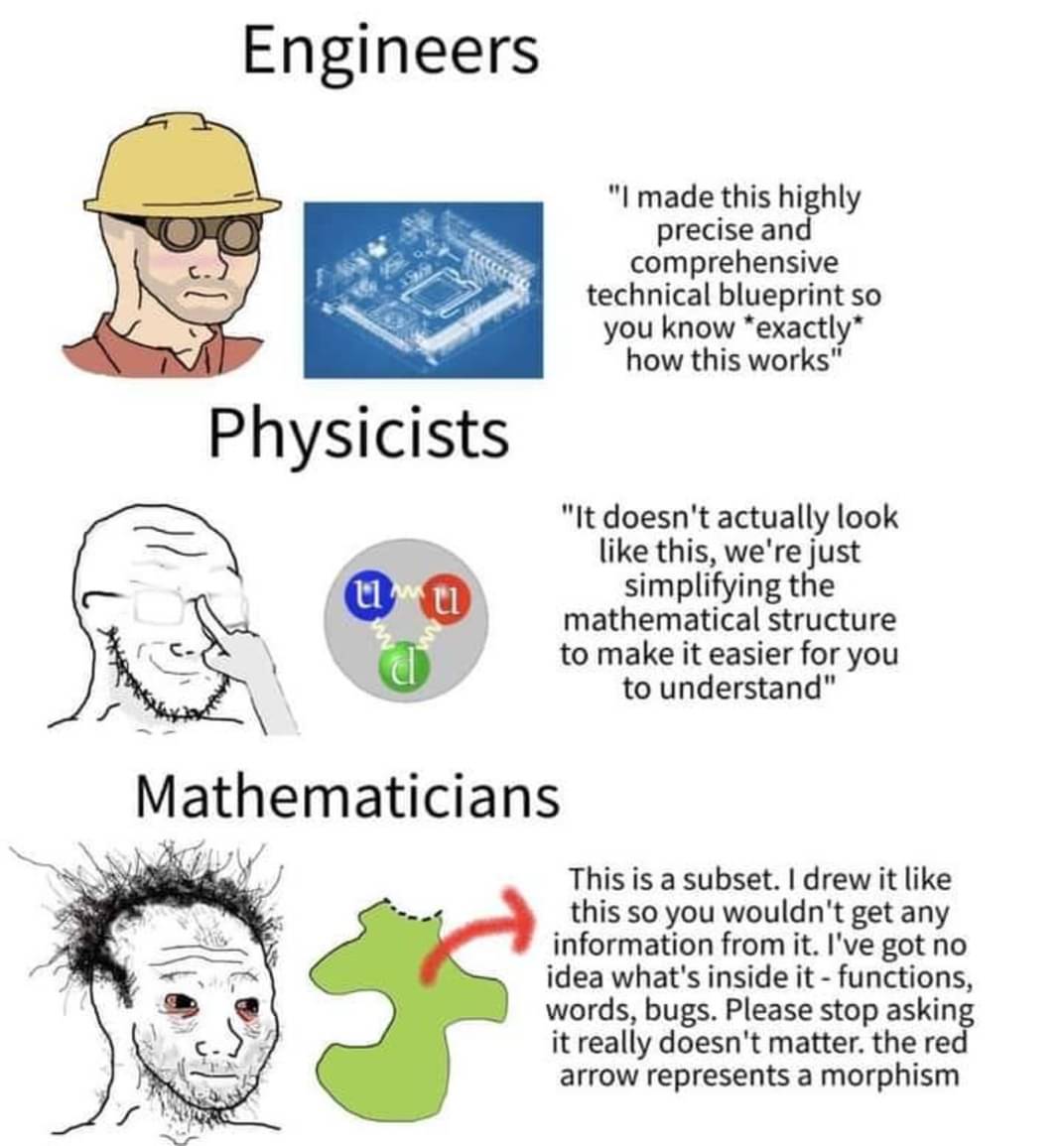this post was submitted on 09 Mar 2024
844 points (98.2% liked)
Science Memes
11068 readers
3017 users here now
Welcome to c/science_memes @ Mander.xyz!
A place for majestic STEMLORD peacocking, as well as memes about the realities of working in a lab.

Rules
- Don't throw mud. Behave like an intellectual and remember the human.
- Keep it rooted (on topic).
- No spam.
- Infographics welcome, get schooled.
This is a science community. We use the Dawkins definition of meme.
Research Committee
Other Mander Communities
Science and Research
Biology and Life Sciences
- !abiogenesis@mander.xyz
- !animal-behavior@mander.xyz
- !anthropology@mander.xyz
- !arachnology@mander.xyz
- !balconygardening@slrpnk.net
- !biodiversity@mander.xyz
- !biology@mander.xyz
- !biophysics@mander.xyz
- !botany@mander.xyz
- !ecology@mander.xyz
- !entomology@mander.xyz
- !fermentation@mander.xyz
- !herpetology@mander.xyz
- !houseplants@mander.xyz
- !medicine@mander.xyz
- !microscopy@mander.xyz
- !mycology@mander.xyz
- !nudibranchs@mander.xyz
- !nutrition@mander.xyz
- !palaeoecology@mander.xyz
- !palaeontology@mander.xyz
- !photosynthesis@mander.xyz
- !plantid@mander.xyz
- !plants@mander.xyz
- !reptiles and amphibians@mander.xyz
Physical Sciences
- !astronomy@mander.xyz
- !chemistry@mander.xyz
- !earthscience@mander.xyz
- !geography@mander.xyz
- !geospatial@mander.xyz
- !nuclear@mander.xyz
- !physics@mander.xyz
- !quantum-computing@mander.xyz
- !spectroscopy@mander.xyz
Humanities and Social Sciences
Practical and Applied Sciences
- !exercise-and sports-science@mander.xyz
- !gardening@mander.xyz
- !self sufficiency@mander.xyz
- !soilscience@slrpnk.net
- !terrariums@mander.xyz
- !timelapse@mander.xyz
Memes
Miscellaneous
founded 2 years ago
MODERATORS
you are viewing a single comment's thread
view the rest of the comments
view the rest of the comments

Oh man the university ptsd as an engineer. I once asked a physics prof at what width does the split slot experiment break down, she couldn't understand the question. All the other engineering students were nodding their heads in agreement with the question and tried to explain the question in a different way, still no idea what we were asking.
It's a good question, but asking it shows that the experiment was explained poorly.
The slits aren't the reason you see an interference pattern. The slits function as two lenses, similar to a pinhole camera. That's something that usually doesn't get explained very well, you can use all sorts of lenses for this, but slits are the most basic (and crucially, glass lenses would cause an interference pattern even if light weren't a wave).
The double slit experiment is basically "if light is a wave, a slit would behave like a lens, similar to a pinhole camera. If light is a particle, it will simply be a hole without any lensing. Two slits show multiple bars, due to interference from the lenses, which means light is a wave"
Which means this works at any scale. All you need is some light in the same frequency, and something to bend it. That can be two slits, some glass, or an entire galaxy.
There are local limits of course, where the effect still applies, but things become too blurry and diffuse to make out. But that's more of a limit to your sensor than the experiment.
What a great comment!